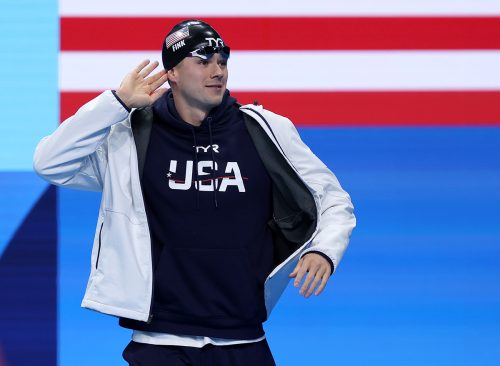Many Olympic athletes have highly impressive careers outside of sports, which they continued with while training for Paris 2024. “It’s not ideal, certainly,” sports psychologist Mark Aoyagi tells NBC News. “That’s particularly if you’re comparing yourself to other countries where some athletes don’t have jobs — they’re being paid by their government. When you’re looking at a Russian athlete or a Chinese athlete being paid, it can be challenging.” That’s not slowing these Team USA champions down: Here are 17 Olympic athletes crushing it both in the competition and their day jobs.
RELATED: How to Watch the 2024 Summer Olympics on Peacock.
Swimmer Nic Fink, 31, is an engineer. “I thought there was a chance that as I dedicated more time into engineering, perhaps my swimming career would begin to sunset,” he told NBC News. “But finding that balance has actually helped me in both, and my swimming’s been just as good or better than ever. It’s been fun to enjoy this part of the ride.”
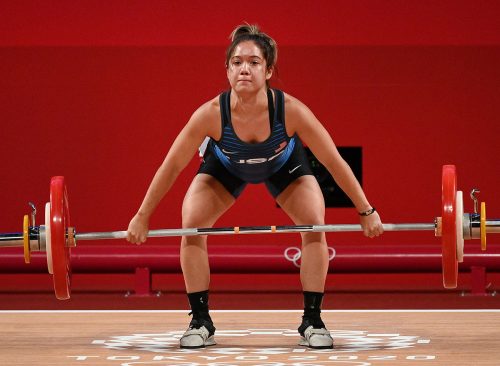
Weightlifter Jourdan Delacruz, 26, has a bachelor’s degree in nutrition and dietetics and started Herathlete, an online space for female athletes. “My personal goals and experiences inspire me to continue pursuing weightlifting at an elite level,” she told Velaasa. “I want to make it to my second Olympic Games and finally be a part of a true Olympic experience.”
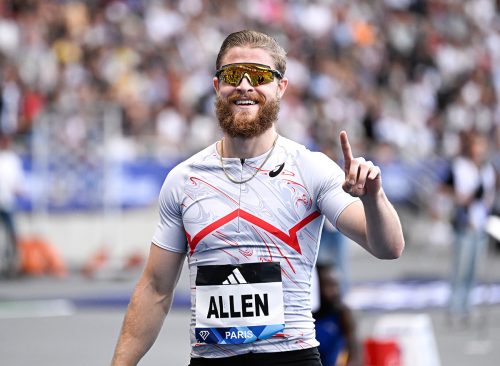
Track & field star CJ Allen, 29, has a doctorate in chiropractic and his Master’s degree in sports health science. “I feel like chiropractic was a relatively easy choice because one, I can be an educator on all things performance, at any given time,” he told FanHubTF. “I don’t necessarily have to be confined to that one thing, I can still take care and provide for people and help them heal from injuries and overcome obstacles that can be very detrimental.”
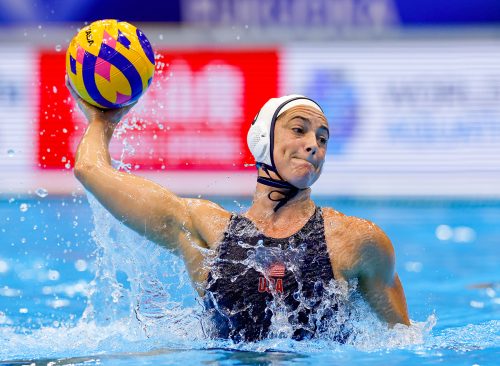
Water poloist Maggie Steffens, 31, is a businesswoman. “I definitely have no shame in saying I want to live a successful life,” she told Nav.it. “I think so many people don’t want to say that. But I definitely want to have a successful life. I definitely want to be still trying to achieve dreams when I’m older as they change and while I’m doing it trying to live a happy and more or less stable life.”
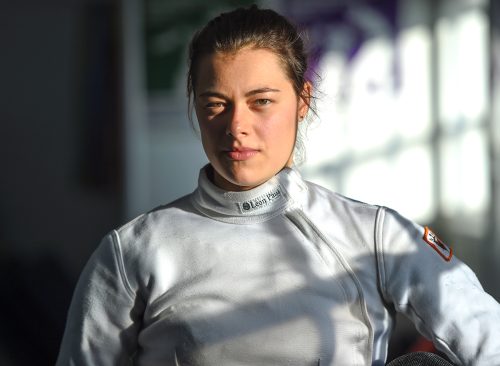
Fencer Kat Holmes, 31, is a research assistant at the Princeton Neuroscience Institute where she studies concussions. “When your team of 30 individuals who are all focused on the same goal is fencing on some random gym floor at UPenn for the Ivy League Championship, that energy can be the same as or greater than at the Olympics just because you have that human force behind it,” she told USA Fencing.
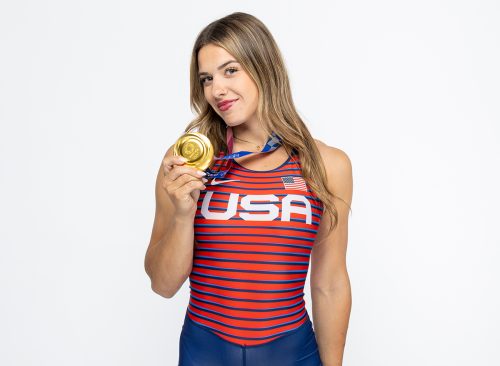
Sprint canoeist Nevin Harrison, 22, studied biology and medicine. “It took a lot out of me to try to make all those practices, but at the same time make all the classes, and do all my homework,” she told Deloitte.
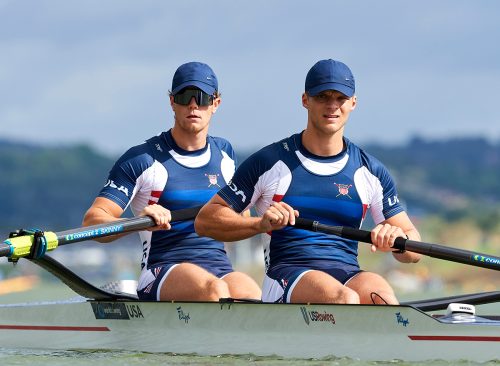
Rower Justin Best, 26, works in finance.” I like to listen to music a lot,” he told Junior Rowing News. “I like to watch movies, YouTube – it just helps take your mind off it. I’m not working right now, but typically I’ll just plug into work and not think a thing about rowing until I have to go do my second session.”
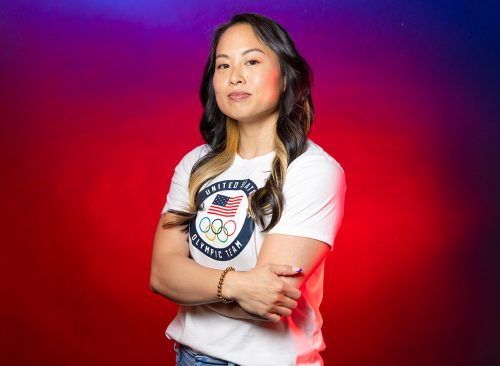
Breakdancer Sunny Choi, 35, resigned last year as the director of global creative operations at Estée Lauder skincare. “For the first time, I was really, truly betting on myself,” she told CNBC. “I think I had always been hedging my bets and doing what I felt was safe instead of throwing all my eggs in one basket and going for it and doing something that I really wanted to do.”
RELATED: 10 Olympic Events You Can’t Miss This Weekend as History Is Made.
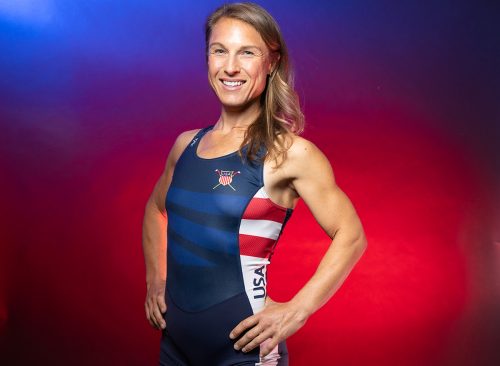
Rower Michelle Sechser, 37, works in finance. “It means that I can go and have a great, focused practice in the morning,” she told USA Today. “If it doesn’t go well and we have a bad set of pieces, or just wasn’t my best performance for the day, there’s not really time to sit around and sulk about it,” Sechser said, “because we’ve got to change outfits and clock in for work.”
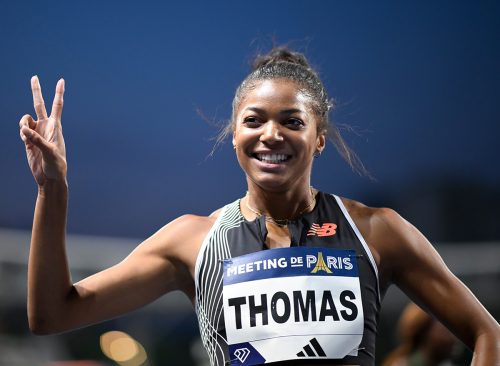
Track & field athlete Gabby Thomas, 27, has a master’s degree in public health with a concentration in epidemiology and volunteers at a health care clinic. “I think I’m just so grateful to get to do what I love,” she told Olympics.com. “I think about it all the time, and even after a hard day at the track, when I’m tired and wheezing from practice, I’m just like, ‘I’m so grateful to be doing what I love and to be able to do it for a living.’
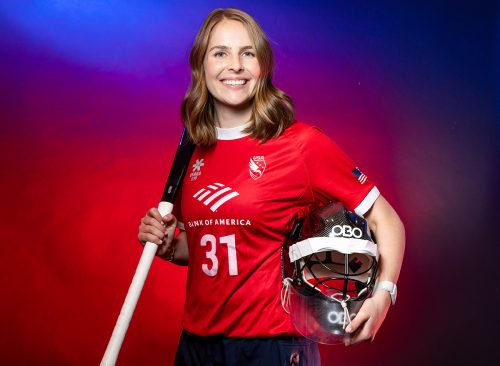
Field hockey player Kelsey Bing, 26, is a mechanical engineer. “I’m very passionate about continuing to develop my career and just having a learning mentality about everything,” she told Olympics.com. “And so, I just continued forging along. One of my biggest learning pieces is you can always ask the question like, what happens? The worst you get told is no. And you’re exactly back to where you started. So I just asked a lot of questions and here I am.”
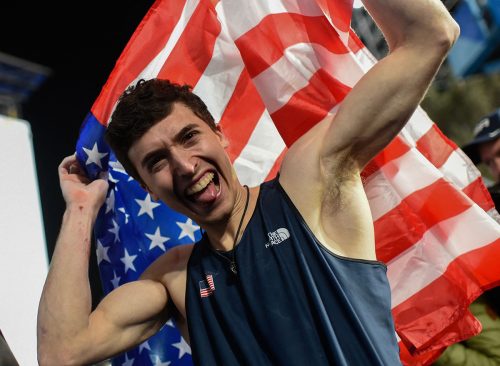
Climber Jesse Grupper, 27, is a research fellow at Harvard’s John A. Paulson School of Engineering and Applied Sciences. “In climbing, you’re given a problem,” he told New Jersey Monthly. “Engineering is the same. There are many ways of doing both, but the point is making it to the finish successfully. If you’ve used your creativity to get there, the satisfaction is huge.”
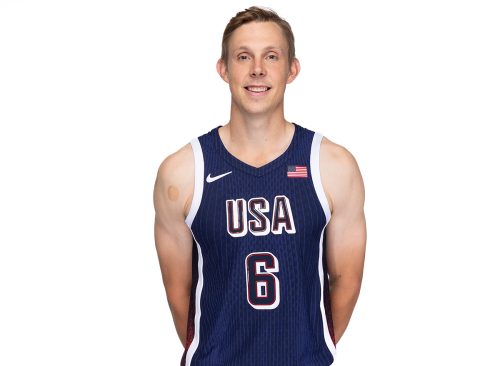
Basketball player Canyon Barry, 30, is a system engineer for a defense and space contractor. He is understandably reserved about what exactly he does. “I’ve talked to L3Harris and they’ve said to not give too much specifics in terms of programs that we’re working on for clearance and security reasons,” he told AP. “But we have a great international compliance and trade security. (And) they briefed me on all this stuff and just said kind of leave it at systems engineering.”
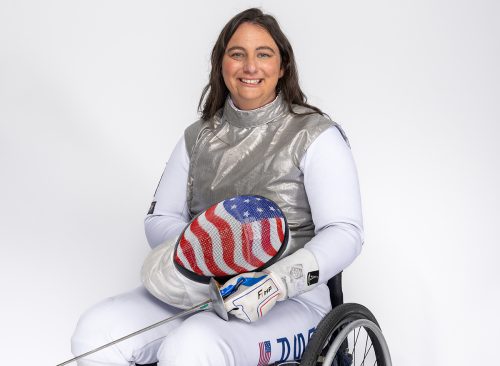
Parafencer Ellen Geddes, 36, breeds horses. “Focus on the process instead of the outcome,” she says. “And if you want to try a sport and be good at it, be prepared to fail and lose first. Keep grinding it out.”
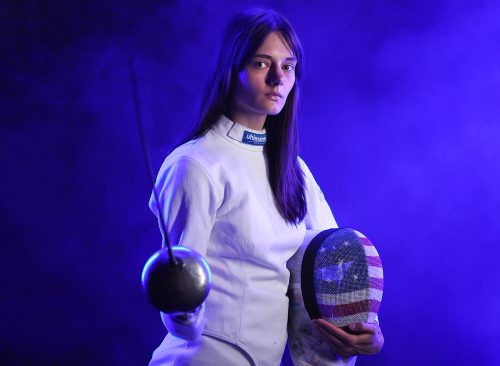
Fencer Anne Cebula, 26, is also a model. “What helped me keep my sanity was trying to be distinct with my time,” she told Vogue. “If I am at fencing practice, I am a fencer, not a model in that moment,” she says. “It’s amazing to have multiple identities, and sometimes it helps to use one identity in a space different than what it’s meant for, but sometimes, that can be exhausting.”
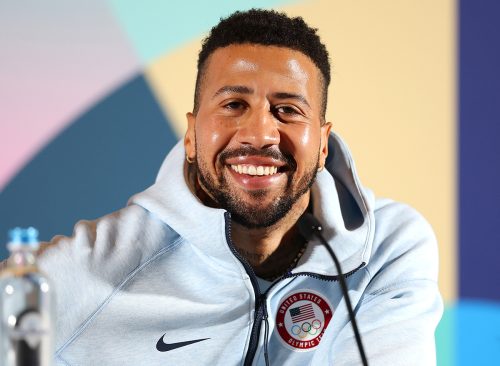
Fencer Miles Chamley-Watson, 34, is also a model and wants to write a children’s book. “You know, I want to do a fun little educational way of just showing kids some ways through life,” he told the anti blueprint project. “When you grow up there’s no wrong turn because you can always make a turn and come back in double time. I was like, let’s do it. A fun, really easy way to help kids through some situations.”
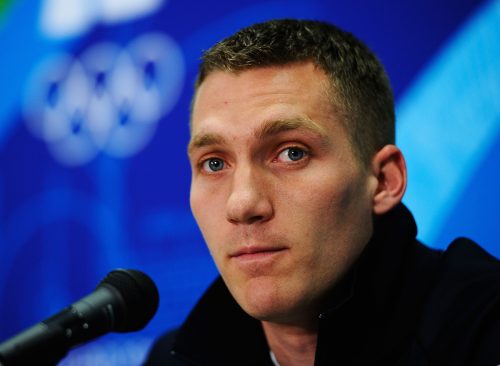
Bobsledder Christopher Fogt, 41, is a United States Army Major. “It’s an honor to represent our great country by wearing the flag on both my military and bobsled uniform,” he told Army WCAP. “In both capacities, I am able to share American and Army values with competitors, friends, and partners across the globe.”

